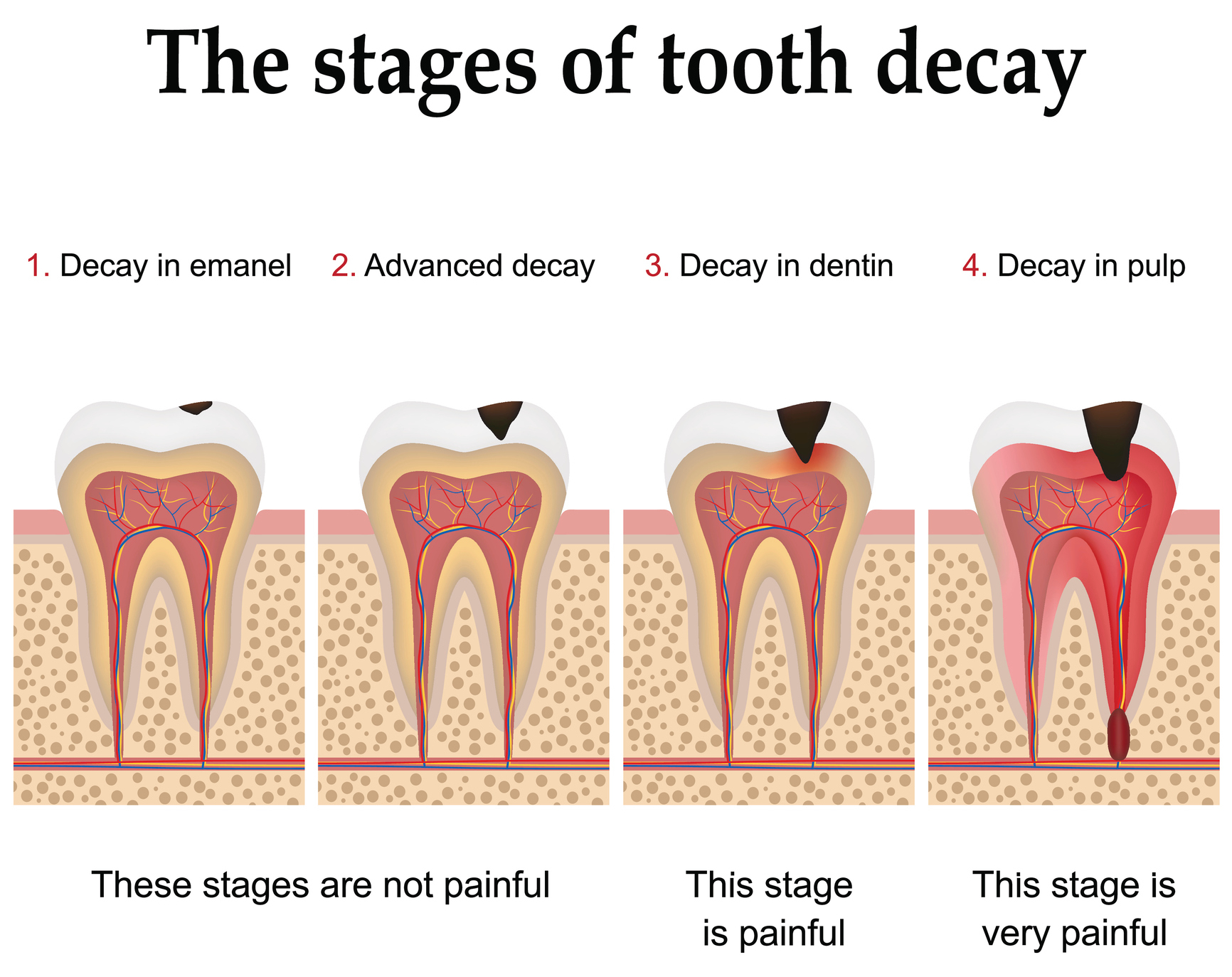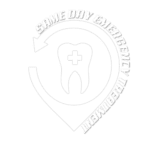Cavities are one of the most common dental problems, affecting people of all ages. They develop when bacteria in the mouth produce acids that erode tooth enamel, leading to decay. If left untreated, cavities can cause pain, infection, and even tooth loss. But how do you know if you have a cavity? In this blog post, we will explore the signs, symptoms, and what you can do to prevent and treat cavities before they worsen.

Common Signs and Symptoms of a Cavity
Cavities don’t always cause immediate pain, which is why many people don’t realize they have one until it becomes severe. However, there are several warning signs to watch for:
1. Tooth Sensitivity
If you experience discomfort or a sharp pain when consuming hot, cold, or sweet foods and drinks, it could be a sign of a cavity. Sensitivity occurs because decay exposes the inner layers of the tooth, making it more vulnerable to temperature changes.
2. Toothache or Persistent Pain
A lingering toothache, whether dull or sharp, is a strong indication of dental decay. The pain may come and go, but if it persists, you should see a dentist as soon as possible.
3. Visible Holes or Dark Spots on Your Teeth
Cavities often create small holes in the teeth. In some cases, you might notice dark spots, brown stains, or even black discoloration on the surface of a tooth. These are signs of enamel erosion and decay.
4. Pain When Biting or Chewing
If you feel discomfort or pain when applying pressure to a tooth while eating, it could mean the decay has reached deeper layers of the tooth, affecting the dentin or nerve.
5. Bad Breath or Unpleasant Taste
Bacteria that contribute to cavities can also cause persistent bad breath or a bad taste in your mouth. If you notice this symptom along with others, it might be time to get checked.
6. Gum Swelling or Pus
In more severe cases, a cavity can lead to an infection that causes swelling or even pus near the affected tooth. This is a serious issue that requires immediate dental attention.
What Causes Cavities?
Cavities don’t develop overnight. They are the result of a combination of factors, including:
- Poor Oral Hygiene – Not brushing and flossing regularly allows plaque to build up, leading to decay.
- Sugary and Acidic Foods – Frequent consumption of sugary and acidic foods creates an environment for harmful bacteria to thrive.
- Dry Mouth – Saliva helps wash away bacteria. If you have dry mouth, you’re at a higher risk of cavities.
- Not Visiting the Dentist – Regular checkups help detect cavities early before they become severe.
How Are Cavities Diagnosed?
If you suspect you have a cavity, your dentist will perform a thorough examination. Here’s what you can expect:
- Visual Examination – Your dentist will check for visible signs of decay, such as discoloration or holes.
- Probing with Dental Instruments – A dentist may gently probe your teeth to check for soft or sticky areas, which indicate decay.
- X-Rays – In some cases, cavities may not be visible to the naked eye, especially if they form between teeth. X-rays help detect hidden cavities.
What Should You Do If You Have a Cavity?
If you suspect you have a cavity, don’t wait for the pain to worsen. Here are the steps you should take:
- Schedule a Dental Visit – Early treatment can prevent the need for more extensive procedures like root canals or extractions.
- Get the Right Treatment – Depending on the severity, your dentist may recommend:
- Fillings – A simple procedure where the decayed area is removed and filled with a material such as composite resin.
- Crowns – If the cavity is large, a dental crown may be placed over the tooth to protect it.
- Root Canal – If the decay reaches the pulp of the tooth, a root canal may be necessary to remove the infection.
- Improve Your Oral Hygiene – Brush twice a day, floss daily, and use fluoride toothpaste to prevent future cavities.
Take Care of Your Smile with Antoine Dental Center
Cavities can start small but, if left untreated, can lead to serious dental problems. By paying attention to warning signs like sensitivity, pain, and visible spots on your teeth, you can catch cavities early and seek treatment before they become severe. The best approach is prevention—maintaining good oral hygiene, making regular dental visits, and avoiding excessive sugar intake will go a long way in keeping your teeth cavity-free.
At Antoine Dental Center, we are committed to helping you achieve and maintain a healthy smile. If you suspect you have a cavity or need a routine checkup, our experienced team is here to provide top-quality care. Schedule an appointment today and let us help you protect your smile!



